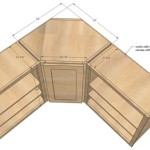The Kitchen Cabinet of the Jackson Administration
Andrew Jackson's presidency (1829-1837) marked a significant shift in American politics. One of the most notable aspects of his administration was the reliance on an informal group of advisors known as the "Kitchen Cabinet." This group operated outside the officially appointed cabinet, wielding considerable influence over Jackson's decisions and policies. While the term "Kitchen Cabinet" carried a derogatory connotation, suggesting backroom dealings and secrecy, its impact on the Jackson administration is undeniable.
Origins and Formation
The formal cabinet, established by the Constitution, served as the official advisory body to the president. However, Jackson's relationship with his appointed cabinet secretaries was often strained. He distrusted some for their perceived elitism and political maneuvering. This distrust, coupled with his preference for informal consultations, led to the emergence of the Kitchen Cabinet. This informal group consisted of close friends, newspaper editors, and trusted political allies who enjoyed Jackson's confidence and provided him with candid advice.
Key Figures in the Kitchen Cabinet
Several individuals played prominent roles in the Kitchen Cabinet. Amos Kendall, a former Kentucky newspaper editor, became a key advisor and speechwriter. His political acumen and loyalty made him an indispensable part of Jackson's inner circle. Francis Preston Blair, another newspaper editor, founded the Washington Globe, which became the administration's mouthpiece. He, along with Kendall, effectively managed public perception and promoted Jackson's agenda. Duff Green, editor of the United States Telegraph, initially held significant influence but later fell out of favor due to political disagreements.
Influence and Power
The Kitchen Cabinet's influence extended across various aspects of Jackson's presidency. They played a crucial role in shaping policy decisions, particularly regarding the Second Bank of the United States, Indian Removal, and patronage appointments. Their access to Jackson allowed them to bypass formal channels and exert considerable influence behind the scenes. This often led to accusations of undermining the official cabinet and operating outside established governmental processes.
The Eaton Affair and Cabinet Reshuffle
The Petticoat Affair, also known as the Eaton Affair, further cemented the Kitchen Cabinet's influence. This social scandal, involving the wife of Secretary of War John Eaton, created divisions within the cabinet and ultimately led to its complete reorganization. Jackson's support for the Eatons, encouraged by members of the Kitchen Cabinet, contributed to the resignation of several cabinet members, creating an opportunity for him to appoint individuals more aligned with his views and further solidify the Kitchen Cabinet’s influence.
The Bank War and the Rise of Party Politics
The Kitchen Cabinet played a significant role in the Bank War, Jackson's fight against the Second Bank of the United States. They provided him with advice and support, helping him articulate his opposition to the bank's perceived power and influence. This conflict further fueled partisan divisions and contributed to the development of the Second Party System, with Jacksonian Democrats pitted against the Whig Party.
Criticism and Legacy
The Kitchen Cabinet faced considerable criticism during Jackson's presidency. Opponents viewed it as an undemocratic and shadowy cabal that undermined the established cabinet and exerted undue influence over the president. They argued that its secretive operations and informal nature circumvented official channels and threatened the balance of power. Despite the criticism, the Kitchen Cabinet remains a significant example of the role of informal advisors in presidential decision-making. Its influence highlights the complex interplay between formal and informal power structures within the executive branch.
Impact on the Presidency
The Kitchen Cabinet’s significance extends beyond the Jackson Administration. It established a precedent for presidents seeking advice beyond their official cabinet. While the term “Kitchen Cabinet” often carries a negative connotation, the practice of consulting trusted advisors outside formal channels continues to be a feature of the modern presidency, demonstrating the enduring impact of Jackson’s informal advisory group.

Andrew Jackson S Kitchen Cabinet

Kitchen Cabinet Political Dictionary
:max_bytes(150000):strip_icc()/GettyImages-3089469-10b830c7b69c4f3c8caf51056984f857.jpg?strip=all)
The Petticoat Affair Scandal In Jackson S Cabinet

Administration And Cabinet Martin Van Buren War Domestic Foreign Second
:max_bytes(150000):strip_icc()/GettyImages-517354664-2c83eb77152348faaba340d6ecee41f1.jpg?strip=all)
The Petticoat Affair Scandal In Jackson S Cabinet

The People Putting Responsibility To Test Or Downfall Of Kitchen Cabinet And Collar Presses Library Congress

Seventh Ward Beggars Graphic Arts

The People Putting Responsibility To Test Or Downfall Of Kitchen Cabinet And Collar Presses Library Congress

Cartoon Jackson And Eaton 1836 The Celeste Al Cabinet

Major Downing Queling The Riot In Kitchen Cabinet
Related Posts








